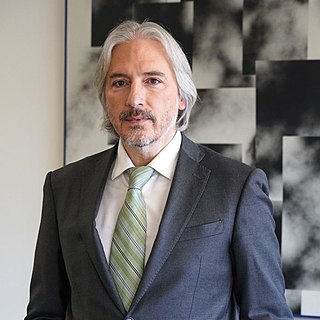A Quote by Matt Gonzalez
A fascinating challenge facing today's environmental movement is how to best approach the reversal of past decisions that altered once-pristine environmental spaces for the sake of urgent man-made needs.
Related Quotes
The "environmental movement" is becoming an economic movement, is joining the social justice movement, is becoming a sustainability movement. It's leaving behind the "People's Needs versus Nature's Needs" conflict in favor of making the case for environmental health as the essential underpinning of prosperous and stable human civilization.
The good news is that there is strong movement in this direction of shifting from domination systems to partnership systems. Over the past several hundred years, one progressive movement after another has challenged traditions of domination - from the 18th century "rights of man" movement challenging the "divinely ordained right" of kings to rule their "subjects" to today's environmental movement challenging the once hallowed "conquest of nature."
Global warming is not only the number one environmental challenge we face today, but one of the most important issues facing all of humanity... We all have to do our part to raise awareness about global warming and the problems we as a people face in promoting a sustainable environmental future for our planet.
In less than a century we experienced great movement. The youth movement! The labor movement! The civil rights movement! The peace movement! The solidarity movement! The women's movement! The disability movement! The disarmament movement! The gay rights movement! The environmental movement! Movement! Transformation! Is there any reason to believe we are done?
The problem of environmental children's health is very urgent in Russia. Environmental situation now is the main factor, which determines young generation's health... the volume of pollutant emissions in atmosphere and water grew and scale of ecological man-caused catastrophes increased. More than half of Russian territories, where 60-70 percent of the of population lives, have unsafe ecological situation.
The problem the world faces today is that only one-third of the world's population lives in decent circumstances, while half the population of the world lives on one or two dollars a day. And even as we have this poverty and backwardness, we are facing a global environmental crisis. We need developmental models that will take into account the specific and unique position of each country and at the same time will address the environmental crisis.

































